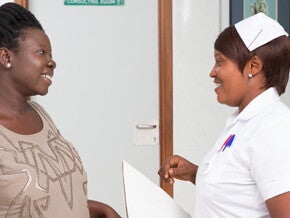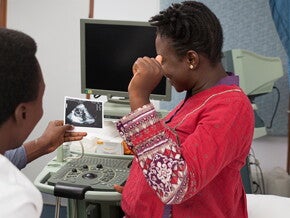
Look out for these 34 weeks pregnant symptoms and signs
BABY DEVELOPMENT
Your body knows what it needs to do. The baby just naturally starts to move into place, your pelvis begins to widen. Does the baby feel particularly heavy? You may be feeling tension or diffusing pain in your lower abdomen. Totally normal: your pelvic joints are loosening up, pulling on your ligaments. It can be highly uncomfortable. Your baby may have already started to go down into your pelvis, he won’t get completely in place until a few days or even hours before the beginning contractions of childbirth.
YOUR BODY
In the last few weeks before the birth you should stay near your doctor or your hospital. You never know when your little darling will suddenly lose patience! Working mothers also finally get some rest now because, at the end of this week, maternity leave begins in most places! Before maternity leave can start, the employer requires a medical certificate from a doctor or a midwife. If the baby is born before the calculated date the “missed” days can be taken after the birth. Maternity leave is extended to 18 weeks in total if the baby is premature or if it is a multiple birth.
NUTRITION
This is a public service promotion on behalf of carbohydrates. Start your day off with a good breakfast of bread and jam, or cereal with fruit, plus fresh fruit juice and dairy products. Remember starchy foods on your plate at lunch and dinner to enjoy a source of complex carbohydrates that will provide you with even-keeled energy over time. Pasta, rice, potatoes or pulses such as beans and lentils are your allies. However, save sweet foods such as cakes, chocolate and sweets as small, occasional treats. The sugars they contain can cause a backlash from your pancreas, an insulin spike that may cause hypoglycaemia.
TIPS
If you’ve been feeling like you can’t catch your breath at times, rest assured that you are not alone.
The growing baby takes up a lot of room inside you now and is likely compressing your diaphragm and lungs. The result? A normal sense of breathlessness. This feeling will disappear naturally once your baby moves down a little in preparation for her exit. In the meantime, find positions that allow your lungs to expand properly whenever you feel short of breath. It is important that the baby is properly oxygenated.



